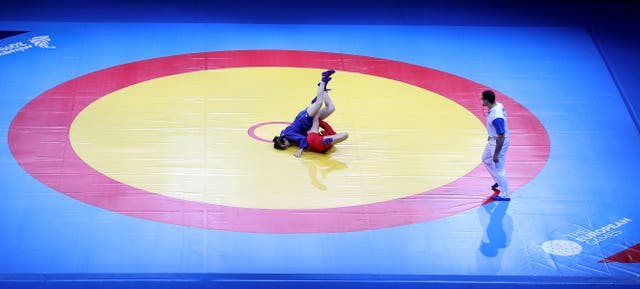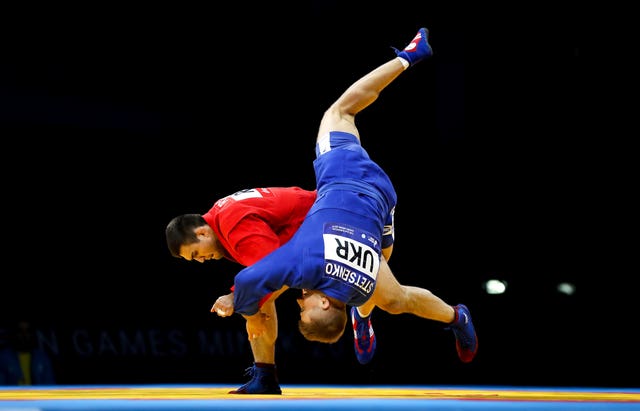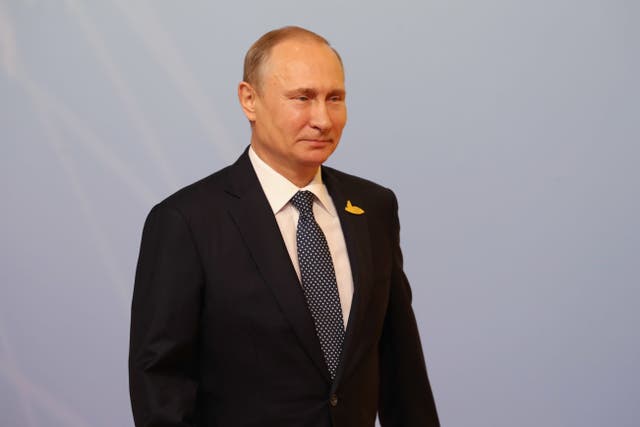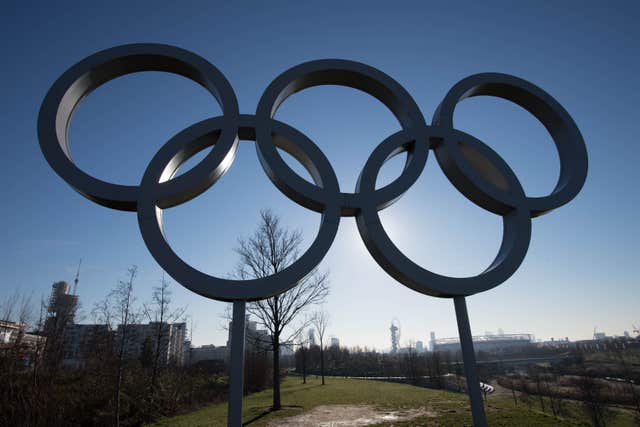Sambo is enjoying a rare moment in the international spotlight during two days of competition at the second European Games in Minsk.
Little-known outside the former Eastern Bloc, the sport nevertheless has big ambitions – and is increasingly confident of inclusion in the Olympic programme.
As it flexes its muscles and aims to make a global impression, Press Association Sport looks at the big questions around the sport.
What's in a name?

Sambo is an unfortunate acronym for the Russian phrase meaning "self-defence without weapons". This causes evident issues in some English-speaking countries due to the word's racist connotations, but they can be averted by simply changing a vowel: Great Britain's governing body is known as the British Sombo Association.
What exactly is it?

Sambo is a combat sport which combines techniques from numerous martial arts, including judo throws, karate strikes and wrestling grapples. It was devised by an intelligence officer called Vasili Oshchepkov, who had studied judo in Japan, as a defence technique for Red Army soldiers after the Russian revolution. For his troubles, Oshchepkov was subsequently accused of being a Japanese spy, and executed in the Great Purge.
Who wins it?

Russia, funnily enough. The nation – or its various political precursors – has emerged with the most medals at all but one of the 43 World Championships staged since 1973. Only 25 of the 143 competitors in Minsk hail from nations outside the former Eastern Bloc. But sambo/sombo boasts 35 European federations alone, including Britain, with sombo clubs in Folkestone, Congleton and Dumfries.
Who is its most famous face?

Vladimir Putin is the sport's ultimate enthusiast, having started competing at the age of 14. He was present to watch its debut at the European Games four years ago, and has backed its bid for Olympic inclusion. Putin also holds the prestigious title of 'National Master of the Sport of Sambo' in Russia.
Is it really going to reach the Olympics?

Last year, the International Olympic Committee granted sambo provisional recognition, which takes it a big step closer to inclusion on the programme. The sport is confident it will soon be accepted. Sambo did make a fleeting appearance at the 1980 Games in Moscow, when it was performed as part of the opening ceremony.
ga('create', 'UA-72310761-1', 'auto', {'name': 'pacontentapi'}); ga('pacontentapi.set', 'referrer', location.origin); ga('pacontentapi.set', 'dimension1', 'By Mark Staniforth, Press Association Sport Olympics Correspondent, Minsk'); ga('pacontentapi.set', 'dimension2', '8e36b817-7ecb-4558-9546-2e1223fdc478'); ga('pacontentapi.set', 'dimension3', 'paservice:sport,paservice:sport:uk'); ga('pacontentapi.set', 'dimension6', 'story'); ga('pacontentapi.set', 'dimension7', 'composite'); ga('pacontentapi.set', 'dimension8', null); ga('pacontentapi.set', 'dimension9', null); ga('pacontentapi.send', 'pageview', { 'location': location.href, 'page': (location.pathname + location.search + location.hash), 'title': 'A closer look at sambo \u2013 the sport making a big impression at the European Games'});
/https%3A%2F%2Fsportsmole-media-prod.s3.gra.io.cloud.ovh.net%2F19%2F09%2Fjason-kenny-laura-kenny.jpg)
/https%3A%2F%2Fsportsmole-media-prod.s3.gra.io.cloud.ovh.net%2F19%2F27%2Fmax-verstappen.jpg)
/https%3A%2F%2Fsportsmole-media-prod.s3.gra.io.cloud.ovh.net%2F15%2F26%2Fnazakat-khalilova-anna-kharitonova.jpg)
/https%3A%2F%2Fsportsmole-media-prod.s3.gra.io.cloud.ovh.net%2F15%2F26%2Fartem-osipenko.jpg)
/https%3A%2F%2Fsportsmole-media-prod.s3.gra.io.cloud.ovh.net%2F15%2F26%2Fivana-jandric.jpg)
/https%3A%2F%2Fsportsmole-media-prod.s3.gra.io.cloud.ovh.net%2F15%2F26%2Falsim-chernoskulov.jpg)